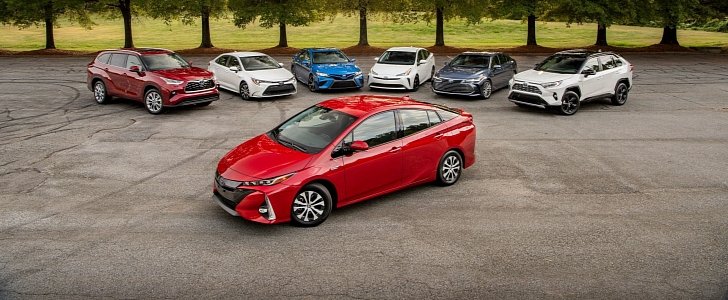Let’s be frank here; not even Toyota makes cars as reliable as they used to be in the early 1990s. Planned obsolescence isn’t a surprise in today’s automotive industry, but worse still, nobody likes cheap plastic and buggy software. When all is said and done, though, Toyota still proves that reliability is an integral part of the Japanese company’s business model.
The same applies to Lexus, and as the headline implies, both brands are now covered by a 10-year/150,000-mile battery warranty for hybrid vehicles. The two-year/50,000-mile extension applies to 2020 models and beyond. There are some strings attached, however, and the most important element is that hybrids are more than just their batteries.
To this effect, the electric motor or motors, power electronics, inverter, and a few other parts of the drivetrain are covered for eight years or 100,000 miles, whichever of the two comes first. Looking at the bigger picture, Toyota and Lexus can be proud of their promise.
The Japanese automaker is the worldwide leader for hybrid vehicles, and last year in the United States, Toyota and Lexus hybrids accounted for 44 percent of all hybrids sold in this part of the world. Be it long-term ownership or a few years of leasing, it makes a lot of sense to switch from ICE-only to hybridization if you want trouble-free daily driving.
“Lexus introduced the first hybrid luxury crossover, RX 400h, in 2005 and first rear-wheel drive hybrid, GS, in 2007, and we remain a leader in luxury hybrid sales,” commented senior manager of marketing Michael Moore. “Toyota introduced the first hybrid vehicle in the world more than 20 years ago, but people still have hesitations about owning a hybrid vehicle,” added Heather Updegraff, marketing and communications general manager.
Minimizing the concerns of the skeptical consumer is important for both brands, and given the automaker’s ever-improving sales results for hybrid vehicles, the eco-friendly technology will keep on getting better.
On a different note, a few European countries such as Norway announced the phase-out of fossil fuel cars by 2025, effectively accelerating the development of hydrogen-powered and electric vehicles such as the Hyundai Nexo and Tesla Model 3.
To this effect, the electric motor or motors, power electronics, inverter, and a few other parts of the drivetrain are covered for eight years or 100,000 miles, whichever of the two comes first. Looking at the bigger picture, Toyota and Lexus can be proud of their promise.
The Japanese automaker is the worldwide leader for hybrid vehicles, and last year in the United States, Toyota and Lexus hybrids accounted for 44 percent of all hybrids sold in this part of the world. Be it long-term ownership or a few years of leasing, it makes a lot of sense to switch from ICE-only to hybridization if you want trouble-free daily driving.
“Lexus introduced the first hybrid luxury crossover, RX 400h, in 2005 and first rear-wheel drive hybrid, GS, in 2007, and we remain a leader in luxury hybrid sales,” commented senior manager of marketing Michael Moore. “Toyota introduced the first hybrid vehicle in the world more than 20 years ago, but people still have hesitations about owning a hybrid vehicle,” added Heather Updegraff, marketing and communications general manager.
Minimizing the concerns of the skeptical consumer is important for both brands, and given the automaker’s ever-improving sales results for hybrid vehicles, the eco-friendly technology will keep on getting better.
On a different note, a few European countries such as Norway announced the phase-out of fossil fuel cars by 2025, effectively accelerating the development of hydrogen-powered and electric vehicles such as the Hyundai Nexo and Tesla Model 3.














